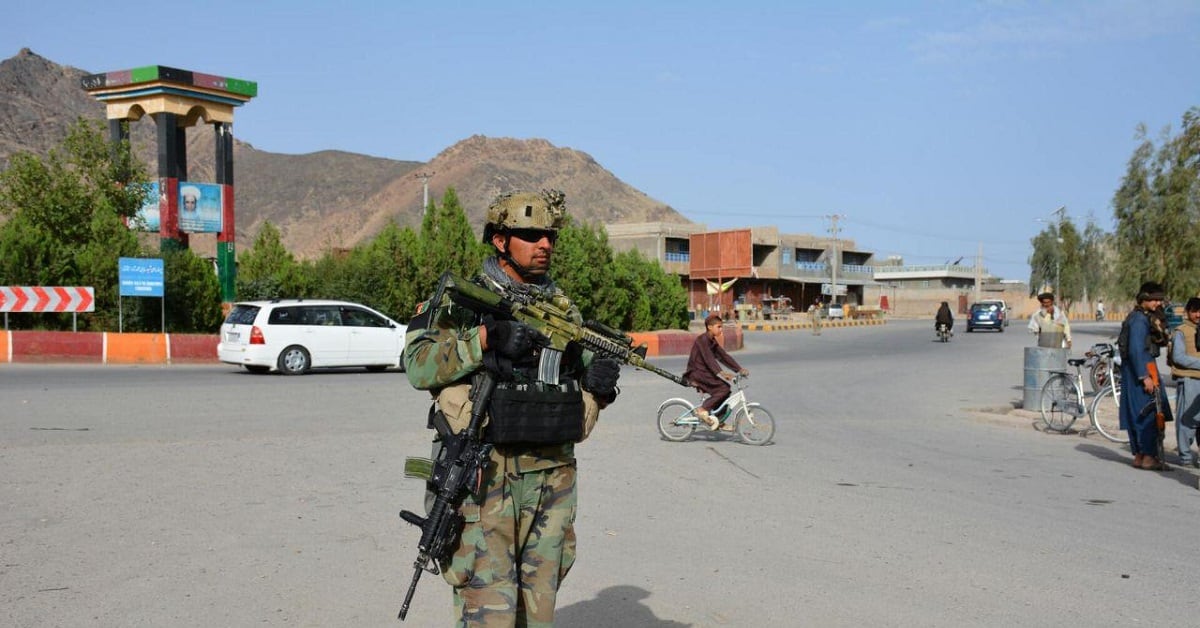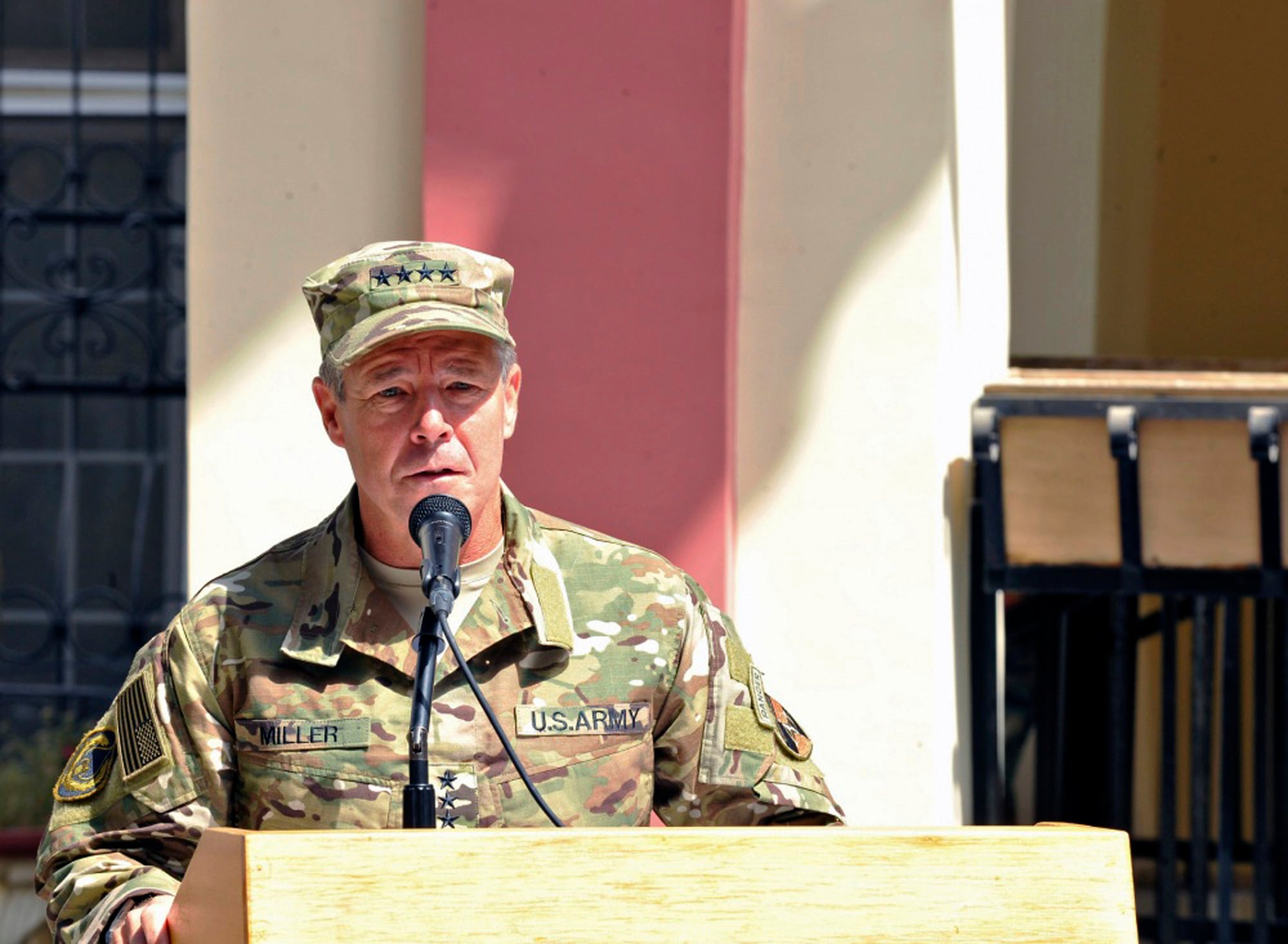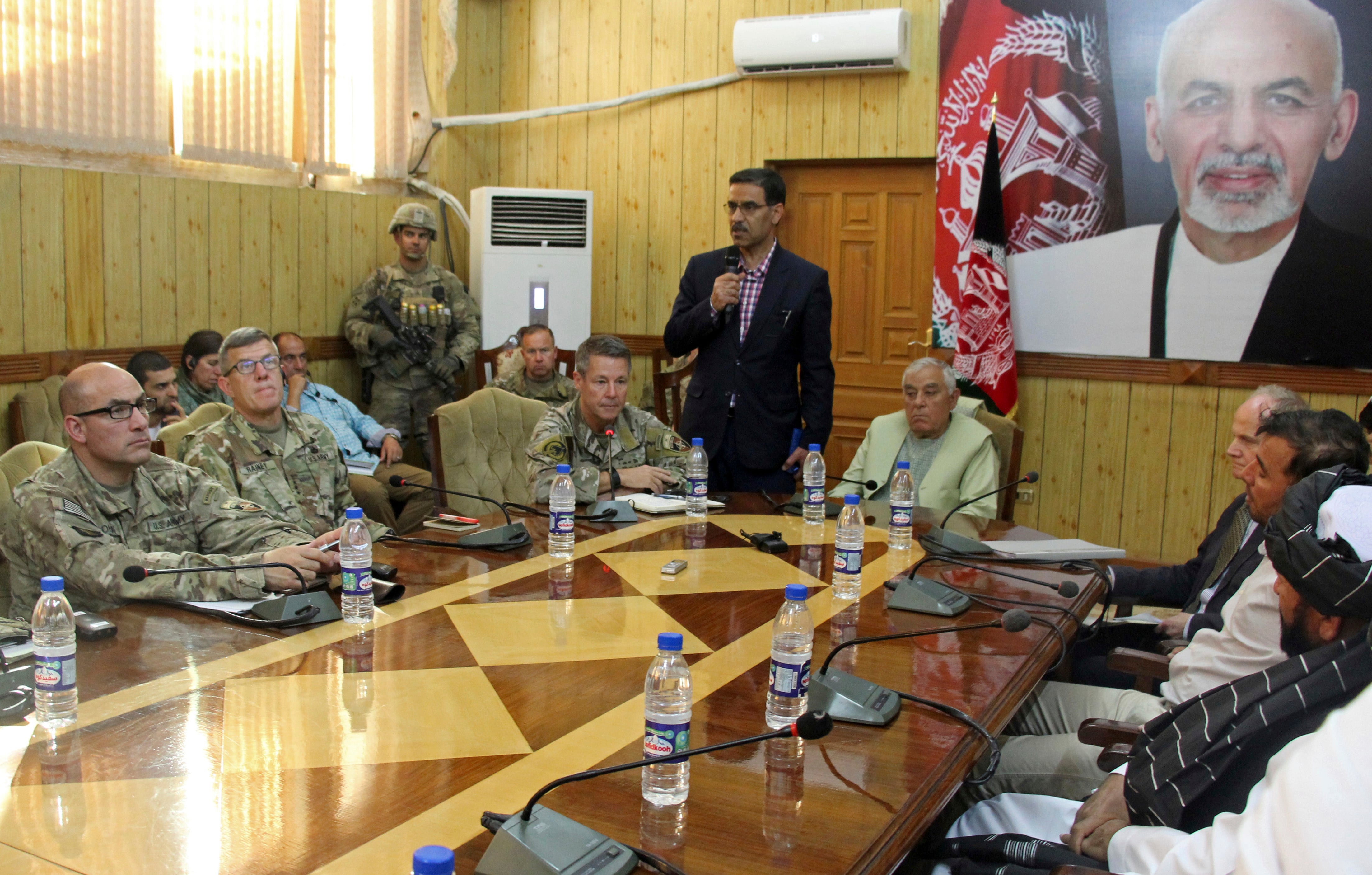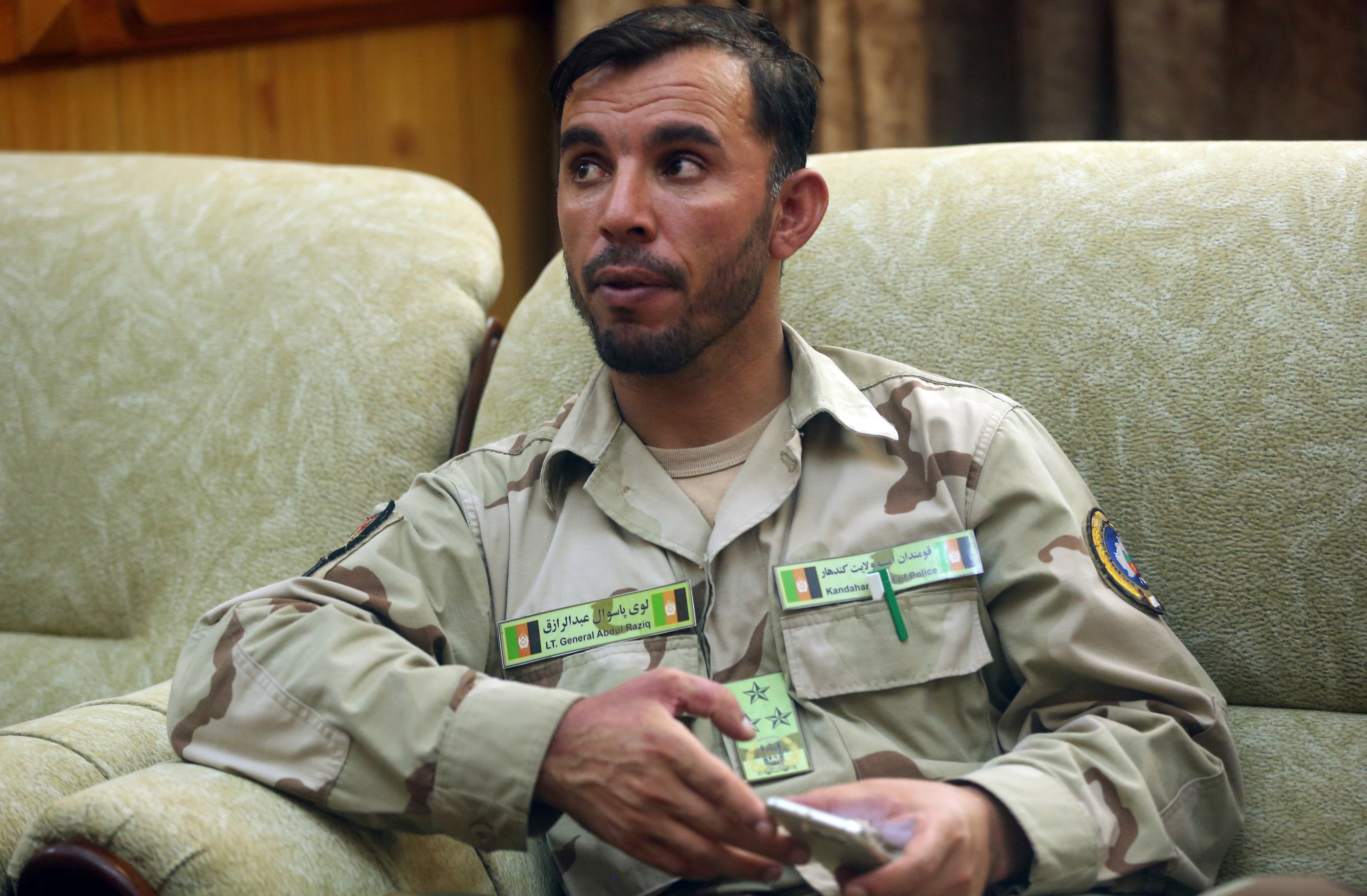SINGAPORE — U.S. Defense Secretary Jim Mattis said Friday the killing of a powerful police chief in southern Afghanistan just days before national elections is unlikely to fundamentally weaken the security situation.
Mattis commented on the attack in Kandahar during a break in meetings at an Asian security conference in Singapore.
Mattis called the death of Abdul Raziq a “tragic loss of a patriot.” But he said he believes the Afghan security forces have matured to the point where they can continue fighting the Taliban without him.
RELATED

"We remain absolutely committed to an Afghan-led Afghan reconciliation," he said. "Right now, we're going toward the election and we will continue to defend the Afghan people."
He said he had not spoken to the top U.S. commander in Afghanistan, Gen. Scott Miller, since the attack. Miller was present during the shooting but uninjured.
The Taliban have claimed responsibility for the assault, saying they targeted Miller.

Afghanistan’s election commission on Friday postponed elections in Kandahar for a week following the brazen attack that killed at least two senior provincial officials. The development came as mourners gathered for the funeral of Raziq.
The Independent Election Commission's deputy spokesman Aziz Ibrahimi said the postponement was meant to allow mourners to observe funeral rites for the slain officials.
Also killed in Thursday's attack was the Kandahar intelligence chief, Abdul Mohmin, but the condition of the province's governor, Zalmay Wesa, who was wounded, has been shrouded in mystery since the assault. Some reports say Wesa has been transferred to a NATO hospital outside Kandahar.
The Kandahar meeting, convened to discuss security plans for Saturday's parliamentary elections, had just concluded when an elite Afghan guard turned his gun on the departing delegation.

Two Afghan policemen were also killed and three were wounded in the attack, according to a Kandahar hospital official who spoke on condition of anonymity because he wasn't authorized to talk to reporters.
Three Americans — a U.S. service member, a coalition contractor and an American civilian — were wounded and in stable condition, NATO said.
A Kandahar lawmaker running for parliament, Khaled Pashtun, said the one-week postponement in the polling was meant to give voters who might have stayed at home on Saturday, afraid so soon after the attack, the chance to vote in the elections.
Nevertheless, the attack, more than 17 years after the Taliban were driven from power, underscores the harrowing insecurity in Afghanistan ahead of the elections.
According to an AP television cameraman who was at the meeting, the delegates had just gathered for a group photo when gunfire broke out inside the provincial governor's compound in Kandahar city. Everyone scattered, and the U.S. participants scrambled toward their helicopter. But a firefight broke out between the U.S. service members and Afghan police when they tried to stop the U.S. delegation from reaching their helicopter, said the cameraman.
Taliban spokesman Qari Yousuf Ahmadi said the militant group carried out the attack and that Miller was the target.
But U.S. Army Col. David Butler, who attended the meeting with Miller, said Raziq was clearly the target, not the U.S. general. Butler said the assailant shot at Raziq and then appeared to spray the area with gunfire before he was killed.

He said Miller and the Afghan leaders had moved outside the palace after several hours of meetings and were standing in small groups in the compound. He said he heard several shots "and we all took cover. It was over in seconds."
Butler added that Miller made sure the scene was secure and the wounded were taken away by medivac before he left the area and returned to Kabul.
Razik was a close U.S. ally despite widespread allegations of corruption. He ruled Kandahar with an iron fist and had survived several past assassination attempts, including one last year that killed five diplomats from the United Arab Emirates.
Afghan President Ashraf Ghani's adviser, Ziaulhaq Amarkhil, said the attack was meant to disrupt elections and urged voters to defy Taliban threats, saying casting their ballot "would be a big slap on the face of the enemy."
The U.N. Security Council condemned the attacks and others recently in Afghanistan and said violence or threats intended to disrupt the elections were unacceptable.





